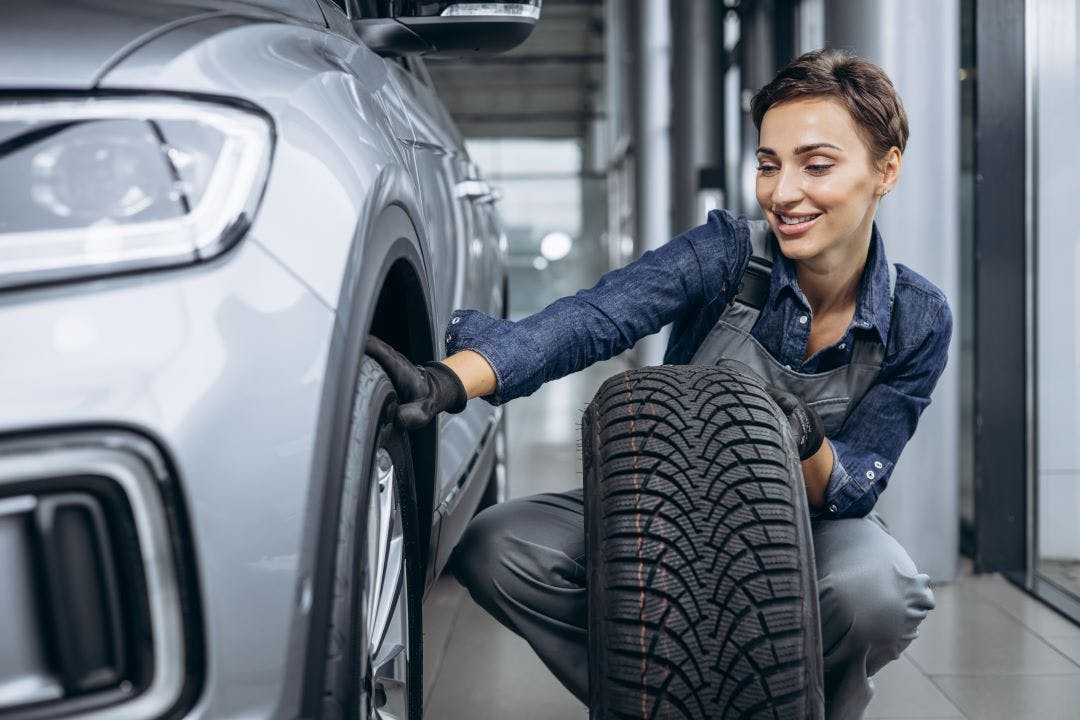
Extend the Lifespan of Your Tires
Tires are an essential component of any vehicle, responsible for providing traction, stability, and a smooth ride. However, they are subject to wear and tear over time, necessitating replacement. By adopting good maintenance practices and driving habits, you can significantly increase the lifespan of your tires. In this blog post, we will explore some practical tips that will help you make your tires last longer, saving you money and ensuring safer journeys.
Proper Inflation:
Maintaining the correct tire pressure is crucial for both safety and longevity. Underinflated tires increase rolling resistance, leading to uneven wear and decreased fuel efficiency. Conversely, overinflated tires can result in reduced traction and a harsh ride. Refer to your vehicle’s manual or the tire placard on the driver’s side door jamb for the recommended tire pressure. Regularly check your tire pressure using a reliable gauge and adjust it accordingly.
Rotate Your Tires:
Tire rotation involves moving tires from one position to another to achieve even wear. This practice ensures that the tires wear out uniformly, prolonging their lifespan. Front tires tend to wear faster than rear tires due to steering and braking forces. By rotating the tires at regular intervals (around every 6,000 to 8,000 miles or as recommended by the manufacturer), you can distribute the wear more evenly and extend their longevity.
Wheel Alignment:
Proper wheel alignment is essential for maintaining even tire wear and maximizing their lifespan. Misaligned wheels can cause uneven tire wear, resulting in premature degradation. Factors such as potholes, curb impacts, and general road conditions can affect wheel alignment. Have your wheels aligned by a professional whenever you notice irregular tire wear patterns or after significant impacts to ensure optimal alignment and extended tire life.
Regular Tire Balancing:
Tire balancing involves equalizing the weight distribution of a tire and wheel assembly. Over time, tires can become unbalanced, leading to vibrations, uneven wear, and stress on suspension components. Regular tire balancing, typically performed during routine tire rotations, helps distribute the weight evenly and promotes a smoother ride. If you experience vibrations or notice uneven tire wear, have your tires balanced by a professional.
Proper Driving Habits:
Your driving habits play a crucial role in the longevity of your tires. Avoid harsh acceleration, sudden braking, and aggressive cornering, as these actions put excessive stress on the tires, causing them to wear out faster. Maintain a safe distance from the vehicle in front of you to avoid unnecessary braking and tire scuffing. Additionally, avoid driving over curbs, potholes, and other road hazards that can cause tire damage.
Regular Tire Inspections:
Regularly inspecting your tires can help you detect potential issues early on. Look for signs of uneven wear, bulges, cracks, or any foreign objects lodged in the tread. Inspect the sidewalls for cuts or damage and check the tire tread depth using a gauge. If you notice any abnormalities, consult a professional tire technician for further evaluation and necessary repairs or replacements.
Seasonal Tire Maintenance:
In regions with distinct seasons, switching to season-specific tires can significantly extend the life of your tires. Winter tires provide better traction on snow and ice, while summer tires offer improved performance in dry and wet conditions. Using appropriate tires for each season reduces wear and tear, ensuring optimal performance and longevity.
By following these practical tips for tire maintenance and adopting responsible driving habits, you can maximize the lifespan of your tires. Proper inflation, regular rotation, wheel alignment, tire balancing, and thorough inspections are essential for optimal tire performance and durability. Remember that well-maintained tires not only save you money in the long run but also contribute to safer.
Have questions about your tires? Make an appointment with us here!
